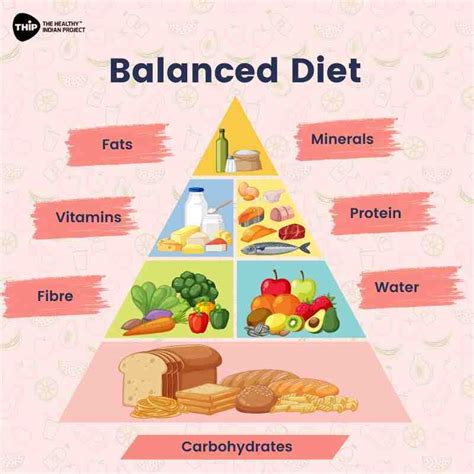Understanding Testosterone and Its Importance
Testosterone is a pivotal hormone, primarily associated with men’s health, though it plays a role in women’s bodies too. In men, it governs a wide array of functions, including the development of muscle mass, bone density, body hair, red blood cell production, and influences libido, mood, and energy levels. As men age, testosterone levels naturally decline, but various factors can accelerate this drop, leading to symptoms like fatigue, decreased libido, reduced muscle mass, and mood swings.
While synthetic interventions exist, many individuals are increasingly turning to natural approaches to optimize their testosterone levels. These methods focus on supporting the body’s intrinsic ability to produce and regulate this vital hormone, offering a sustainable path to improved health without the potential side effects of external therapies. This article delves into the most effective dietary, exercise, and lifestyle modifications proven to naturally enhance testosterone production.

Dietary Strategies for Testosterone Optimization
What you eat forms the fundamental building blocks for hormone production. A balanced diet rich in specific nutrients is crucial for healthy testosterone levels.
Embrace Healthy Fats
Contrary to popular belief, healthy fats are essential for hormone synthesis, including testosterone. Incorporate monounsaturated fats found in avocados, olive oil, and nuts, as well as polyunsaturated fats from fatty fish like salmon and mackerel, and seeds (chia, flax). These fats provide the necessary cholesterol precursors for steroid hormones. Conversely, limit intake of trans fats and excessive saturated fats found in processed and fried foods, which can negatively impact overall health and hormone balance.
Prioritize Protein Intake
Adequate protein is vital for muscle growth and repair, which is intrinsically linked to testosterone’s effects. It also plays a role in various enzymatic processes involved in hormone production. Aim for lean protein sources such as chicken breast, turkey, lean beef, eggs, dairy products (Greek yogurt, cottage cheese), and plant-based options like legumes and tofu. Distribute protein intake throughout the day to maximize absorption and utilization.

Boost Micronutrients: Zinc, Vitamin D, and Magnesium
- Zinc: This trace mineral is a powerhouse for testosterone synthesis. Studies have shown that zinc deficiency can lead to reduced testosterone levels. Excellent sources include oysters, red meat, shellfish, beans, nuts, and whole grains.
- Vitamin D: Often dubbed the “sunshine vitamin,” Vitamin D is more akin to a hormone and plays a significant role in testosterone production. Regular, safe sun exposure is the best way to get Vitamin D, but dietary sources like fatty fish, fortified dairy, and supplements can also contribute.
- Magnesium: Involved in over 300 enzymatic reactions, magnesium is crucial for overall health and has been linked to higher free testosterone levels. Rich sources include leafy green vegetables, nuts, seeds, whole grains, and dark chocolate.
Equally important is to limit highly processed foods, refined sugars, and excessive alcohol consumption, as these can contribute to inflammation, insulin resistance, and directly impair hormone function, ultimately depressing testosterone levels.
Exercise Regimens for a Testosterone Surge
Physical activity, particularly certain types, is a potent natural testosterone booster. The key is smart training, not just any training.
Strength Training: The King of T-Boosters
Resistance training, especially compound exercises that engage multiple muscle groups simultaneously, is highly effective. Focus on heavy lifting with proper form for exercises like squats, deadlifts, bench presses, overhead presses, and rows. These movements stimulate a significant hormonal response. Aim for 3-4 strength training sessions per week, allowing for adequate recovery.
High-Intensity Interval Training (HIIT)
Short bursts of maximal effort followed by brief recovery periods characterize HIIT. This training modality has been shown to acutely increase testosterone levels. Incorporate sprints, burpees, or intense cycling intervals into your routine. HIIT should be done 1-2 times per week to complement strength training without overtraining.
While cardiovascular exercise is vital for heart health, excessive long-duration, moderate-intensity cardio can sometimes lead to a decline in testosterone. A balanced approach that combines strength training, HIIT, and moderate cardio is ideal for optimizing testosterone and overall health.

Lifestyle Adjustments for Optimal Testosterone
Beyond diet and exercise, several lifestyle factors profoundly impact your body’s ability to produce and maintain healthy testosterone levels.
Prioritize Quality Sleep
Sleep is when your body repairs, recovers, and produces hormones. Chronic sleep deprivation dramatically lowers testosterone. Studies indicate that getting less than 7-9 hours of quality sleep per night can significantly reduce T-levels. Establish a consistent sleep schedule, create a dark and cool sleep environment, and avoid screens before bed to optimize your sleep hygiene.
Master Stress Management
Chronic stress elevates cortisol levels, often referred to as the “stress hormone.” High cortisol directly competes with testosterone, as both are produced from the same precursor molecule. When cortisol is high, testosterone production can be suppressed. Incorporate stress-reducing practices into your daily life, such as meditation, yoga, deep breathing exercises, spending time in nature, or engaging in hobbies you enjoy.

Maintain a Healthy Body Weight
Obesity, particularly excess abdominal fat, is strongly correlated with lower testosterone levels. Adipose tissue contains an enzyme called aromatase, which converts testosterone into estrogen. Losing excess weight, especially around the midsection, can significantly increase testosterone. Combining diet and exercise is the most effective strategy for sustainable weight management.
Limit Alcohol and Avoid Endocrine Disruptors
Excessive alcohol consumption can impair testicular function and directly reduce testosterone production. Moderation is key. Furthermore, be mindful of exposure to endocrine-disrupting chemicals (EDCs) found in some plastics (BPA, phthalates), pesticides, and personal care products. These chemicals can mimic or block hormones, interfering with natural testosterone synthesis.

Conclusion: A Holistic Path to Natural Testosterone Enhancement
Boosting your testosterone naturally is a holistic journey that requires consistent effort across multiple fronts. By making deliberate and informed choices in your dietary habits, adopting a consistent and effective exercise regimen focused on strength and intensity, and optimizing critical lifestyle factors like sleep, stress management, and maintaining a healthy weight, you can significantly support your body’s inherent ability to produce and regulate testosterone. Remember, patience and consistency are not just virtues but necessities for achieving sustainable and impactful improvements in your T-levels and overall well-being. Consult with a healthcare professional before making significant changes to your diet, exercise, or lifestyle, especially if you have underlying health conditions.




